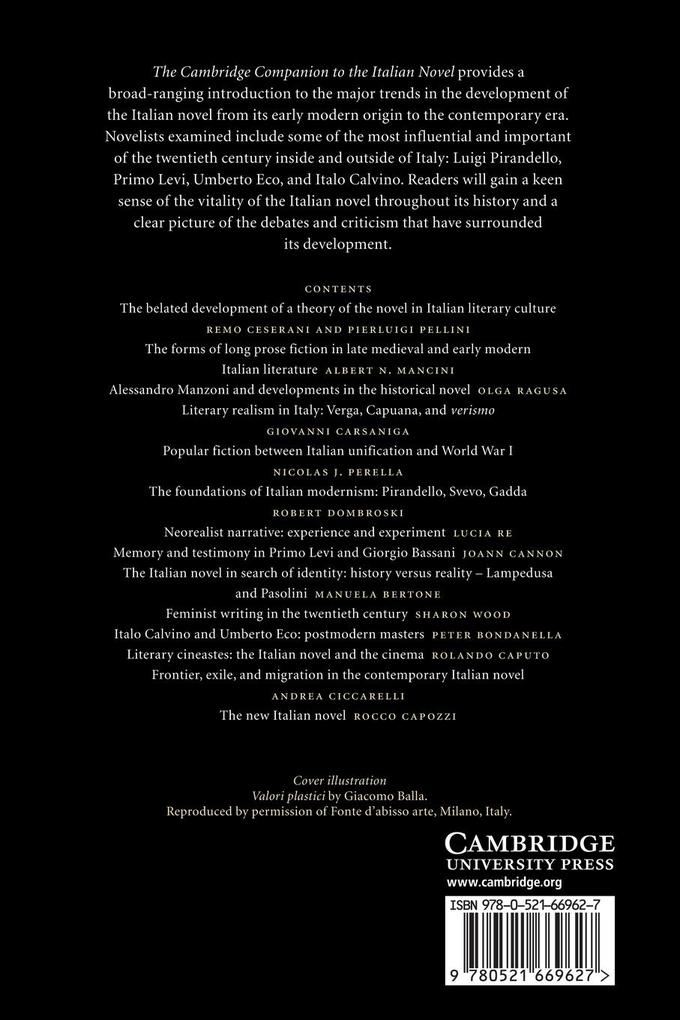This study provides a broad-ranging introduction to the major trends in the development of the Italian novel from its early modern origins to the contemporary era. It examines some of the most influential and important novelists of the twentieth century, such as Luigi Pirandello, Primo Levi, Umberto Eco and Italo Calvino. Readers will be exposed to the vitality of the Italian novel throughout its history, in addition to learning about the debates and criticism that have contributed to its development.
Inhaltsverzeichnis
Chronology; Introduction; 1. The belated development of a theory of the novel in Italian literary culture Remo Cesarini and Pierluigi Pellini; 2. The forms of long prose fiction in late medieval and early modern Italian literature Albert N. Mancini; 3. Alessandro Manzoni and developments in the historical novel Olga Ragusa; 4. Literary realism in Italy: Verga, Capuana, and verismo Giovanni Carsaniga; 5. Popular fiction between Italian unification and world war I Nicolas J. Perella; 6. The foundations of Italian modernism: Pirandello Svevo, Gadda Robert Dombroski; 7. Neorealist narrative: experience and experiment Lucia Re; 8. Memory and testimony in Primo Levi and Giorgio Bassani JoAnn Cannon; 9. The Italian novel in search of identity: history versus reality - Lampedusa and Pasolini Manuela Bertone; 10. Feminist writing in the twentieth century Sharon Wood; 11. Italo Calvino and Umberto Eco: postmodern masters Peter Bondanella; 12. Literary cineastes: the Italian novel and the cinema Rolando Caputo; 13. Frontier, exile, and migration in the contemporary Italian novel Andrea Ciccarelli; 14. The new Italian novel Rocco Capozzi.











